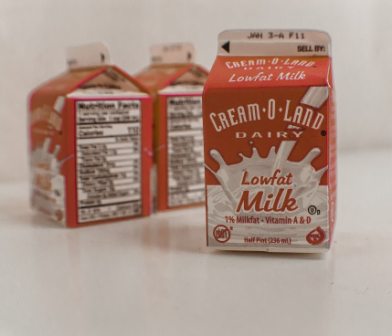If you were overtaken by the food-buying mania of the early days of COVID-19, you may have a pantry or refrigerator or freezer full of packaged food. If you look at the products’ date to guide whether you should use them for your next meal, you may have found yourself scratching your head.

If you’re confused about date labels, you’re not alone. With terms such as “best by,” “use before,” “sell by,” “best if used by,” it’s no wonder American consumers are throwing away perfectly good food! Consumer confusion about the meaning of the dates that appear on food packages is believed to contribute to about 20% of food waste in the home. Between the food industry and consumers, Americans are throwing out about a third of their food which is about $161 billion worth each year. That’s like throwing away every third bag of groceries purchased in the United States!
So what do the dates mean?
Because product dating is not required by the Federal Government (except for infant formula), a multitude of terms and dates were used by manufacturers to help consumers and retailers decide when food was of the best quality (i.e. the date to which they can expect the food to retain its desired quality and flavor). Hence comes the confusion: the dates were a quality indicator, not a safety indicator.
Thankfully, the food industry has come up with a more standardized term to hopefully help clear up the date labeling confusion. The term “Best if Used By” is now accepted and has been shown to best convey to consumers that the products do not have to be thrown away after the date if they are stored properly.
According to the USDA, here are some commonly used wordings you may see on food packages:
- “Best if Used By/Before” date indicates when a product will be of best flavor or quality. It is not a purchase or safety date.
- “Sell-By” date tells the store how long to display the product for sale for inventory management. It is not a safety date.
- “Use-By” date is the last date recommended for the use of the product while at peak quality. It is not a safety date except for when used on infant formula.
- “Freeze-By” date indicates when a product should be frozen to maintain peak quality. It is not a purchase or safety date.
So how do we know if the product is still safe to eat?
To ensure your food will stay at its best quality and safety, it’s important to properly store it. Make sure you put away your groceries shortly after you get home. If your perishable items are left on the counter for a while, they are exposed to higher temperatures that may degrade them and encourage harmful microorganism growth that can spoil them. Refrigeration or freezing is what keeps these microorganisms dormant therefore proper storing is crucial to maintain food safety.
As for non-perishable, most of them will stay perfectly safe to eat if stored in a dry, temperature-controlled pantry. Canned foods for example can stay good almost indefinitely as long as the integrity of the seam is not compromised and it’s not rusted or bulging. Even if it’s dented (as long as the dent is not at the seam), it’s probably fine to eat.
Mainly, trust your senses to determine if the food is safe to eat. If the products have changed noticeably in color, consistency, or texture, you may want to discard them. Also, check out these resources to help you keep your food safe:
The FoodKeeper App (Foodsafety.gov/keep/foodkeeperapp/index.html), designed to promote understanding of food and beverage storage to maximize freshness and quality.
The Refrigerator and Freezer Storage Chart on page 4 of the FDA’s Food Facts brochure (Fda.gov/media/101389/download), providing more information about which products to refrigerate or freeze, and for how long.
If you have more questions about date labeling or food safety, please reach out to the Age Well’s Helpline at 800-642-5119 and request a consultation with the dietitian. Remember that at any time, food is too important to waste and this is especially true now.
Brigitte Harton is a consultant Registered Dietitian at Age Well and a Board Certified Wellness Coach. For more information about the services Age Well provide such as community meals and Meals on Wheel, call the Helpline at 800-642-5119 or visit AgewellVT.org.
Related Articles & Free Subscription

Do You Need to Take a Dietary Supplement?






Comment here